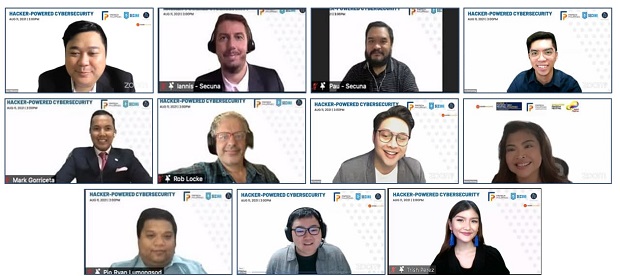The Philippines ranks high as the fourth country in Asean targeted by ransomware attackers while remaining at a low 82nd when it comes to cybersecurity readiness.

The country’s vulnerability to cyber threats was highlighted in the recent “Hacker-powered Cybersecurity Webinar” held recently by cybersecurity testing platform Secuna.
Secuna CEO Iannis Hanen summarized the national level of cyber risk that the country faces, saying, “We are not in the worst position, but we can be better. There are countries that have stronger cybersecurity but the Philippines is actually learning and catching up quite fast.”
As an agile and effective solution, Secuna said it advocates the deployment of White Hat Hackers (WHHs), known as the “good hackers,” who can detect and report the IT and digital vulnerabilities that expose them to cyber attacks.
Their skills are sought-after as Philippine companies have entered the cross-hairs of online hostiles who probe for and exploit weaknesses in their IT infrastructure. Yet there are still not enough cybersecurity professionals who can meet this urgent demand, with 2.046 million vacancies unfulfilled in Asia alone.
In the webinar, which Secuna organized with the FinTech Philippines Association (FPH), Secuna president Jay Ricky Villarante gave this solution to this situation that is affecting many businesses today: “With the rising cyberthreats in the Philippines, how can companies become cyber-secured in this ever-evolving digital era? With the help of the cybersecurity community and a proactive, continuous mindset toward protecting your data, a brighter future can be secured.”
AJ Dumanhug, chief information security officer of Secuna, explained how their WHH-centered strategy can neutralize present and future cyber threats.
“Genius hackers strengthen companies’ cybersecurity by rigorously and continuously testing their systems to protect them and their users. We incentivize those WHHs for finding valid security vulnerabilities in our clients by paying the first hacker who finds those problems,” Dumanhug said.
The regional shortage in cybersecurity professionals increases companies’ exposure to cyber attacks, which Dumanhug said “are inevitable. They are a 7 in likelihood and 8 in impact, which is almost the same as natural disasters.”
Rob Locke, chief technology officer of Quad X which specializes in digital logistics and e-commerce payment processing, agreed that cyber protection as well as the number of cybersecurity professionals can be increased by “raising awareness for security practices through educational programs.
“A lot of the great developers out there don’t really understand the basic principle on how to design a secure application. In that sense, education specific to security would go a long way,” he said.
Rui Fortuna, VP for information security of social networking service Kumu, said that a strong cybersecurity structure can “not only protect the Filipinos but also the future WHHs. We really have to support such governance.”
Philly Tan, co-founder of DIY lab software company Dashlabs.ai, echoed that if organizations “transition to a more proactive approach, it will be much safer for them. They’ll be prepared when issues arise and when WHHs start contributing to their platform.”
Pio Lumungsod, chief technology officer of digital banking solutions provider PearlPay, encouraged collaboration. “We should have a platform where the ideas are free-flowing and the private and government sector can share the best practices,” he said.




